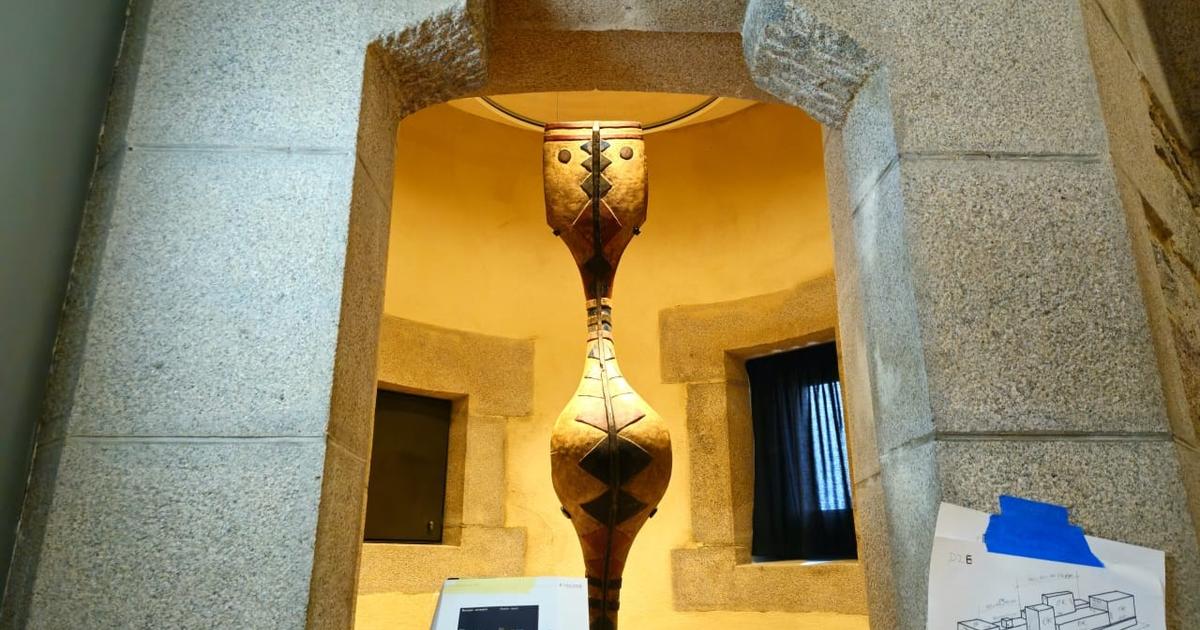Jean-Philippe Delsol is a lawyer and president of the Institute for Economic and Fiscal Research (IREF), a liberal and conservative think tank he created some twenty years ago with academics and professionals from different European countries. . He is the author of ten books, the latest of which is
Civilization and Free Will.
Why the West is different
(Desclée de Brouwer, April 2022).
FIGAROVOX. - Your book is called “Civilization and Free Will”. Do you think free will is the cardinal principle of Western civilization? Where does it find its intellectual foundations?
Jean-Philippe DELSOL. –
I do believe that free will is one of the main concepts that has allowed the West to be a different, new and productive civilization.
It can be seen that free will hardly existed previously.
In ancient civilizations, fate presided over the organization, thought and future of men.
The men were delivered to gods of which they were the puppets.
Submission was an accepted principle which meant that ancient political regimes were only rarely democracies.
Except, of course, in Athens which, even if it has only known democracy intermittently, has accepted the richness of the debate.
Thus free will appeared in particular in Aristotle who affirms that “
man is the principle of his actions
”.
Aristotle sees man as different from other created beings because he possesses free will.
Western civilization will inherit both this Greek thought that we find in some Stoics, then in Cicero and Epictetus in ancient Rome, and from Jerusalem.
The West is born from the fusion between Jerusalem, Athens and Rome.
Because, Jerusalem is probably the first civilization attached to free will.
The Jewish God is a free god who creates beings in his image, therefore free.
This free will is found in Genesis where God said to Adam: “I give you a paradise but if you touch these two trees, you will die”.
Ben Sira, a prophet of the last centuries before the coming of Christ, said the same thing: "
if you will, you will keep the commandments
"
.
There is this idea that free will is given and revealed to men by God.
I believe that this is basically the first birth of the West.
Very influenced by Christianity, he will live deeply from this free will and will make it a sort of cornerstone of his civilization.
The novelty in the seeds of free will and in its conception that is born in Jerusalem, Athens and Rome, is that free will allows the singularity of man.
Henceforth, man appears as more than a social or political animal.
He is unique and able to act on his own.
Jean-Philippe Delsol
How is it based on a conception of freedom naturally present in man?
Free will is the ability of man to choose what he wants to think, say or do, to choose one option when he could have chosen another.
But it is not freedom, it is its prelude, its matrix, its condition.
He is the actor of the will while freedom constitutes what his physical and legal environment allows for the expression of the will.
Free will is inner freedom, that which wants to express itself deep within ourselves, which allows us to determine, to examine, to decide and finally to act, provided that civil liberties allow it.
To claim freedom, man must have his free will.
If all our actions depend on gods or the stars or on some fate, our actions do not matter because everything is planned in advance and there is nothing to do that can reverse the order of things. things.
This is what the first Greek myths said that told the fate of Acrisios or Oedipus.
But Antigone, the daughter of Oedipus, precisely, came to upset this belief by demanding that each man be recognized as an individuality with personal rights.
Free will will appear as something that is rooted in the very nature of Man.
A certain freedom existed before free will was recognized, but this freedom came from the government and the gods.
It came from above, was not specific to man but conceded.
The novelty in the seeds of free will and in its conception that is born in Jerusalem, Athens and Rome, is that free will allows the singularity of man.
Henceforth, man appears as more than a social or political animal.
He is unique and able to act on his own.
From my point of view, free will has always existed because it exists at the bottom of human nature but Man did not recognize it.
The fact of recognizing it will allow Man to understand that he has faculties in himself and by himself of which he was not aware.
A rabbi of the last century, Noah Weinberg, said “
the most important thing is not that man has his free will, but that God told us that we have free will.
This is greater than giving it to us
”.
It is through the awareness of this free will that we have been able to act on our own.
It is truly one of the active principles of Western civilization.
For science to exist, freedom of thought must first exist.
Because science consists in the search for a truth which is constructed through debate.
Jean-Philippe Delsol
What are the political consequences of free will? Does it necessarily lead to a form of liberalism?
This recognition of free will is truly founding of a form of civilization because it will generate behaviors different from those of a civilization where determinism prevails.
If we observe the Muslim world, we can observe two periods.
In the first centuries of the Hegira after the life of Muhammad, Islam hesitated a great deal.
Does God leave us free or is he the source of everything?
Barely two centuries after the death of Muhammad, there was in Baghdad a great caliph, Al-Ma'mūn, who favored an already quite strong current of Islam which was called "mūtazilism".
He considered that men were responsible for their actions and therefore free.
During this period of about two centuries from the 9th to the 11th century when mūtazilism was dominant, Islam was extremely rich scientifically, economically and intellectually in general.
But after two centuries, mūtazilism is put under a bushel.
The dynasty of Caliph Al-Ma'mūn more or less disappears, new conquerors arrive and return to a doctrine more rooted in determinism.
This current is born with Asch'ariֿ whose doctrine still dominant today affirms that God is at the origin of all human acts, good or bad.
An 11th century philosopher, Al-Ghazali relies in particular on sura 8-17 of the Koran which says "when you kill someone, it is not you who killed him but it is Allah who killed" to impose a total determinism that will extinguish freedom of thought.
Islam freezes in the law.
Of course, there will still be great thinkers in Islam who will try to claim a certain freedom, including Averroes and Ibn-khaldûn,
but they will soon be marginalized.
Averroes is great and known only in the West, and Ibn-khaldûn defends freedom only when it is useful to the Sultan.
However, from the moment when free will is rejected, science no longer progresses in the same way.
A striking example is that of the comet of 1577. In the 16th century, the scientific world, both Western and Arab, was very concerned about what was happening in the sky.
To properly observe the comet announced in 1577, scientists will build more powerful observatories.
In the West, it was a scientist called Tycho Brahe who was going to build an observatory and was actually going to observe the shape and trajectory of the comet and draw many scientific conclusions from it.
At the same time, an Arab and Muslim scholar Taqi Al-Din Ibn Ma'ruf will also build an observatory.
But rather than finding scientific lessons there, he looks for omens of the sultan's victories.
As this one will not win all his battles, the observatory will be destroyed.
This is one of the consequences of determinism.
For science to exist, freedom of thought must first exist.
Because science consists in the search for a truth which is constructed through debate.
Is scientifically true the argument that no one manages to destroy in a free and open debate.
This truth will sometimes only be relative, until someone manages to challenge it.
Nevertheless, this is how science progresses.
For science to exist, there must therefore be a recognition of free will.
The West will experience a movement opposite to that of the Arab world.
Initially, a single power had tried to impose itself.
The Roman emperor also wanted to be the sovereign of souls, but Constantine in the 4th century recognized the Church.
After long debates, it was agreed with the Gregorian reform of the 11th century that everyone, of the Empire and of the Church, had his share and that the world was not governed by a single power but by separate powers.
The medieval order was itself built on subsidiary powers to each other from the smallest to the largest.
This multiplication of powers has allowed freedoms to live, even if there were obviously reluctances.
This context was favorable to the intellectual freedom from which all the scientific progress of medieval thought was born,
From a political point of view, free will entails freedom of thought which requires freedom of expression, which means that it enables democracy.
The real difficulty is that since democracy is the fruit of a civilization that recognizes free will, it has great difficulty integrating and finding its place in countries that do not recognize it as one of the main determining characteristics. of the relationship between people.
It is respect for free will, and freedom as natural to man, which leads to the thought that people should not be governed by someone who thinks the good for them, but by themselves.
I think on the contrary that we only have our free will to seek our own ends.
If we consider that man does not live only by himself, for himself, by himself, that he is part of both a community and a certain transcendence, then freedom and free will find their meaning in the search for this purpose.
Jean-Philippe Delsol
You write in your work
“
freedom is not much if it is not based on the use of free will
” and in conclusion
“
neither freedom nor free will can be an end in itself
”.
Does free will suppose that freedom is directed towards a certain good?
Free will is a fundamental character, constitutive of our humanity, but also at the service of our humanity.
I think neither freedom nor free will can be considered the end of themselves.
Sartre, for example, thinks that freedom is an end unto itself.
It does not go beyond the freedom which can then be completely unbridled.
I think on the contrary that we only have our free will to seek our own ends.
If we consider that man does not live only by himself, for himself, by himself, that he is part of both a community and a certain transcendence, then freedom and free will find their meaning in the search for this purpose.
Free will and freedom are intended to be at the service of the search for this purpose.
We do not know the good with certainty.
Evil is more easily known.
The good is expressed in such diverse forms that it is more difficult to name it, to designate it.
There is no single good for us men in our imperfection even if there can be a single good in itself.
The meaning of our life will then be to seek this Good, but since this Good is not known, since no one can say that he knows it with certainty and therefore no one can have the right to impose it on others, the very search for this Good demands and presupposes this freedom and this free will.
There is only a very strong beam of presumption.
Kant said that there are three things we cannot support with scientific certainty: God, the existence of the soul, and the existence of free will.
Jean-Philippe Delsol
Why are there so many oppositions to the existence of free will, especially in modern thought? What are the consequences ?
Free will is something that is always scary, including those who use it.
A certain number of men prefer to take refuge under a strong political power because they are afraid to think for themselves and to be responsible for themselves.
They prefer to be submissive but protected.
On the other hand, at the level of both civil and religious powers, free will and freedom are permanent dangers of calling into question their domination. This freedom is therefore never easy to accept for them who often prefer govern by constraint than by respecting freedom.
Protestantism in this regard is a somewhat special phenomenon since it rebels against the pope and will create one or more doctrines that are initially extremely deterministic.
In Luther, but also in Calvin, these doctrines are very strongly oriented towards an almost absolute predestination by God who knows everything about our lives, who says who will be saved and who will not.
There is even an animosity in the words of Luther and Calvin against free will that is surprising today.
However, it is commonly said that the Reformation, Protestantism in all its forms, was the inspiration for liberalism in the West.
There is a sort of apparent contradiction.
In reality, things are a bit more complicated.
Firstly, because freedom of enterprise and its expression, i.e. the development of
a form of free capitalism, existed in Europe long before the birth of Protestantism in the early 16th century.
But also because the Reformation was certainly very violent in its beginnings against free will, but it then never ceased to find accommodations with its initial violence to give back to man a kind of freedom, a role in his own salvation.
This allowed Protestantism to promote freedom of enterprise by considering that work contributed to human salvation, not by its merit but as recognition of grace.
He also promoted the personal responsibility of the individual in his religious practice.
For these reasons and a few others, Protestantism has been able to favor the extension of a liberal economy wherever it has spread.
existed in Europe long before the birth of Protestantism in the early 16th century.
But also because the Reformation was certainly very violent in its beginnings against free will, but it then never ceased to find accommodations with its initial violence to give back to man a kind of freedom, a role in his own salvation.
This allowed Protestantism to promote freedom of enterprise by considering that work contributed to human salvation, not by its merit but as recognition of grace.
He also promoted the personal responsibility of the individual in his religious practice.
For these reasons and a few others, Protestantism has been able to favor the extension of a liberal economy wherever it has spread.
existed in Europe long before the birth of Protestantism in the early 16th century.
But also because the Reformation was certainly very violent in its beginnings against free will, but it then never ceased to find accommodations with its initial violence to give back to man a kind of freedom, a role in his own salvation.
This allowed Protestantism to promote freedom of enterprise by considering that work contributed to human salvation, not by its merit but as recognition of grace.
He also promoted the personal responsibility of the individual in his religious practice.
For these reasons and a few others, Protestantism has been able to favor the extension of a liberal economy wherever it has spread.
In terms of civil powers, it is the temptation of many sovereigns to hold full power over men and to think that they alone know what is good and can dictate it to others.
That's what Napoleon probably thought.
That's what Stalin and Hitler thought.
This is also what a certain number of people in power think in our countries.
Doesn't the European Union in a more democratic but nevertheless very technocratic power think the good for us imperially?
No one can demonstrate in a scientific sense that free will exists.
There is only a very strong beam of presumption.
Kant said that there are three things we cannot support with scientific certainty: God, the existence of the soul, and the existence of free will.
But if free will did not exist there would be neither freedom nor responsibility.
To be responsible, man must be able to determine his actions for himself.
If he is determined or predestined, he is not responsible for himself.
I believe that from this point of view, free will is almost imperative and the recognition of its existence is necessary for the recognition of man in his humanity as we conceive it.
Free will makes it possible to conceive the
Jean-Philippe Delsol, Civilization and Free Will.
Why the West is different, Desclée de Brouwer, April 2022, 384p.
Desclee de Brouwer









